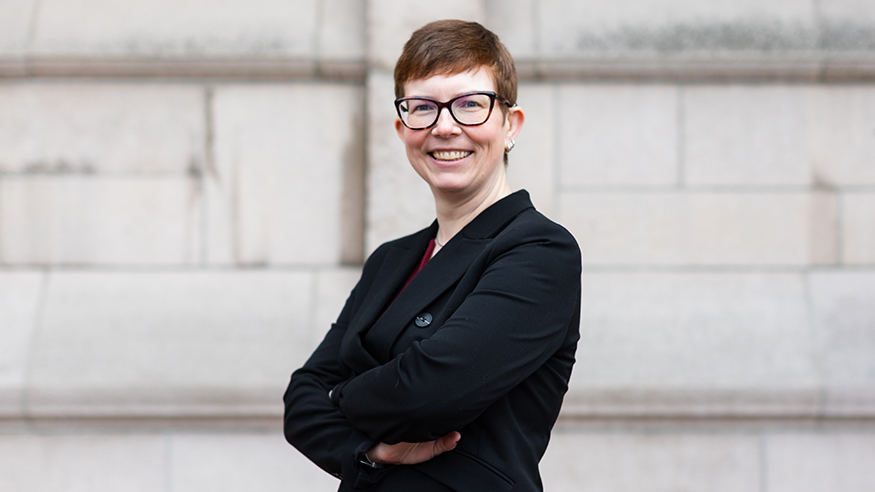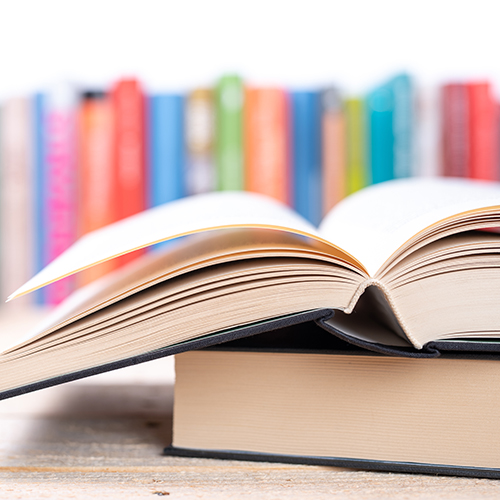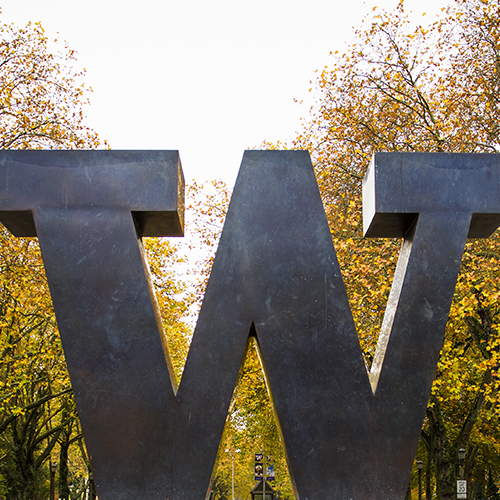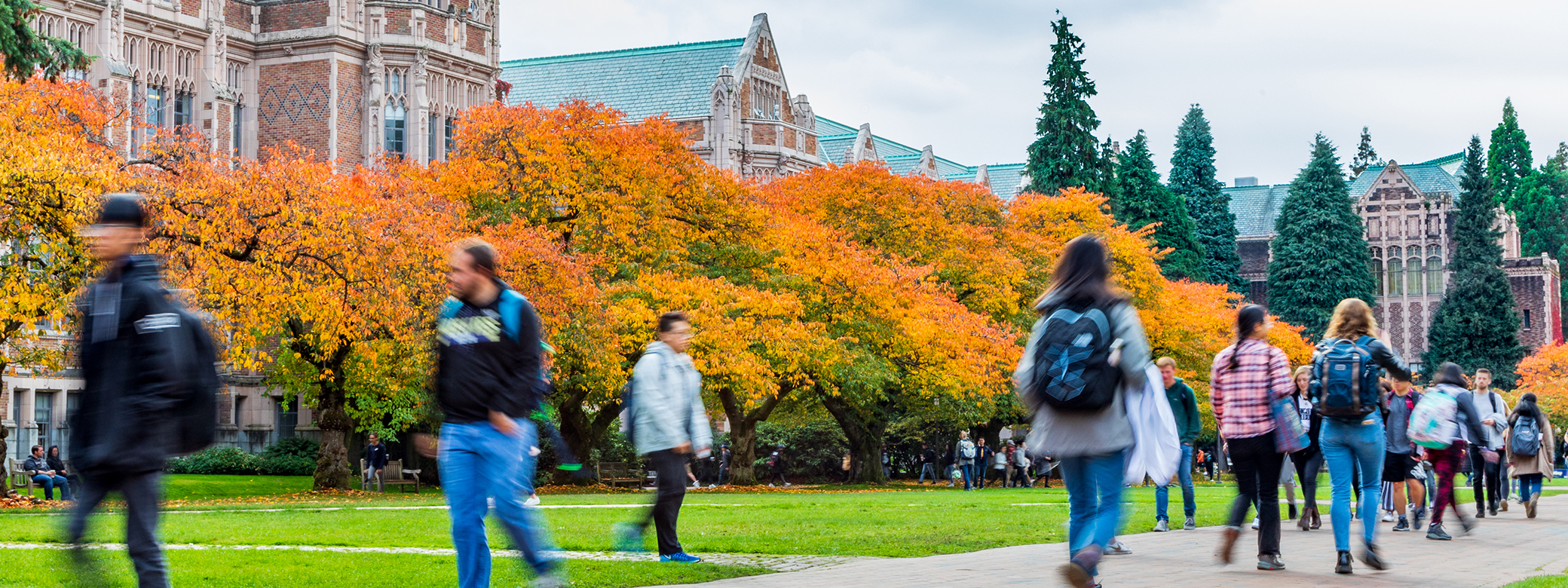
Stephanie Kerschbaum has spent much of her life’s work thinking about how we express ourselves. More specifically, how do we convey who we are to others? It’s a thread that’s woven through her chosen fields of rhetoric, communications, and disability studies. Tug on the thread a little more, and the ideas of access and inclusion start to unspool as well.
These overlapping interests give Kerschbaum, UW associate professor of English and director of the Expository Writing Program, a unique standpoint from which to approach teaching and mentoring. They provide her a framework to create environments focused on inclusion and perspective, which led to her being honored with the 2021 Lisa Ede Mentoring Award by the Coalition of Feminist Scholars in the History of Rhetoric & Composition.
As Kerschbaum puts it, “I think a lot about what it means to include people, or to behave in a way that opens up space for other people. Part of being able to think about that comes from experiences of being included rather than being excluded.”
As a deaf woman, Kerschbaum has firsthand knowledge of what it feels like to be in spaces that are limiting. Growing up, she often found herself trying to understand what was going on or what people were saying. And until she went to Ohio State University, the burden of responsibility in trying to navigate her environment as a deaf woman often fell on her.
I think a lot about what it means to include people, or to behave in a way that opens up space for other people. Part of being able to think about that comes from experiences of being included rather than being excluded.
When encouraged to take advantage of Ohio State’s infrastructure for students who were deaf or hard of hearing, Kerschbaum experienced a paradigm shift. She learned what happened when classrooms were more accessible to her. She saw how much more fully she could participate. This new involvement led to questions about access as fundamental to participation in any kind of environment.
Incidentally, while attending academic conferences in graduate school, Kerschbaum found herself gravitating toward disability studies panels — largely because they tended to be the most accessible sessions. Instead of needing to make sense of what she was hearing, Kerschbaum could engage with scripts that presenters made available on a handout. It saved her the mental labor and energy of trying to speech-read presentations or relying on an interpreter struggling to keep up with rapid academic speech. It also reaffirmed that when access is considered a fundamental element of participation, it creates space for greater interaction.

Kerschbaum’s interest in understanding how we communicate and interact with one another, combined with her awareness of the importance of access and inclusivity, makes her a natural fit as a mentor. One mentoring activity with faculty builds on her own experiences in focused small group environments that enable meaningful interaction. Pivotal to the success of such structures is creating an environment where faculty can ask questions, articulate their needs, and identify opportunities for greater support without concern of judgment or exclusion.
It’s not a far stretch to see how her interest in inclusivity and access has branched out across her professional endeavors. It’s part of why the University of Delaware named her the inaugural Faculty Mentoring Fellow while she was on faculty there. It’s also part of why the Lisa Ede Mentoring Award Committee chose to honor her. In their review, the committee noted that Kerschbaum “creates spaces for mentorship that are not egocentric; and that she mentors in ways that would typically be invisibilized by institutional structures.”
These days, Kerschbaum is thinking more about perception. She wants to know, “What do we build knowledge about compared to what we’ve been taught to pay attention to? And how do we notice and look for disability?” Unlike race and gender, disability is not always something people in the United States are encouraged to look for and notice. Instead, it’s connected to other sorts of identification that matter to how we interpret, navigate, and negotiate our environment. Understanding perception and how it pertains to disability is a key theme of her next book, which is currently in production and will be published in 2022.
In the meantime, Kerschbaum is focused on helping UW students build writing and communication skills to navigate their everyday language. It also means she gets to think about the ways writing instructors are trained to support students in writing classes across the University. Above all, she’s focused on doing her part to make everyone feel included.
More Stories

Exploring Connections Through Global Literary Studies
The UW's new Global Literary Studies major encourages students to explore literary traditions from around the globe and all eras of human history.

What the Sky Teaches Us
Brittany Kamai, an astrophysicist with knowledge of Pacific Islanders' Indigenous navigation using the sky, is teaching a new UW course, Pacific Indigenous Astrophysics.

Fellows, Futurists & More Awards
Recent awards and appointments celebrate Arts & Sciences faculty, staff, and alumni research, leadership, and more.
